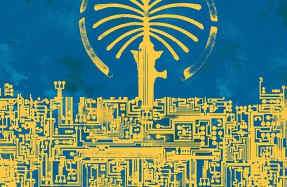Living the news

The power of vulnerability
By Naina Bajekal, editorial director, newsroom development
SHORTLY AFTER I GRADUATED FROM UNIVERSITY in 2014, I went for dinner with three college friends, all white women. When the conversation turned to job applications, one expressed frustration that her company’s push for diversity had made it difficult for interns like her to get hired. “I don’t think anyone should be getting a job just because of the color of their skin,” she said, turning to me. “You’d hate that too, wouldn’t you?”
My face felt both hot and numb, tension coiled hard in my chest. I pushed back on the implication that hiring minorities meant a lowering of standards and presented the business case for diversity, but I did not say how the conversation made me feel.
I’d entered the workforce armed with a copy of Lean In and high hopes to climb the ladder and make a difference. When I became an editor, I had the power to make choices I felt passionate about—to hire, give assignments and elevate voices—but I rarely saw myself reflected at the mostly white decisionmaking table. Eager to grow, I devoured books and articles on leadership, usually by white women who preached about ambition, seizing opportunities, negotiating salaries and talking in meetings. The message was clear: Get the system to work for you.
For many years, I tried that. Corporate diversity tends to reward people of color like me—well-off, highly educated minorities whose presence assuages the guilt of white leaders without requiring them to create truly inclusive companies. Any hostility I faced just became fuel to prove myself, as if there might be a magical I would say when a colleague apologized for a hurtful remark, totally fine. I would swallow it all down, my anger or my sadness, and put on my good-soldier uniform to complete the next task.
You’re reading a preview, subscribe to read more.
Start your free 30 days





